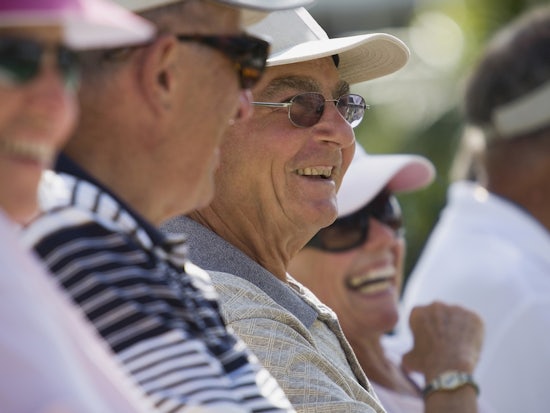Ageing populations – it’s a Common-wealth problem
Australia’s growing concerns surrounding an ageing population are no secret, but new research by CommonAge has revealed that the issue is not an isolated one, and is in fact a Commonwealth-wide problem.

The figures are in: Commonwealth countries are an ageing population (Source: Shutterstock)
The Ageing in the Commonwealth research report, by CommonAge, shows that improved healthcare systems are leading to increased longevity, and that even in the poorest and slowest ageing Commonwealth countries – where a majority of deaths are still caused by communicable diseases, poor nutrition and childbirth – a large and growing proportion of the population is surviving to ages where elders are more likely to die from chronic non-communicable conditions than anything else.
This increase in ageing numbers is also opening up avenues for further crisis, including increases in the numbers of older people in need of long term care, increased pressure on the health care system as well as workforce and funding issues.
CommonAge Chairman Andrew Larpent says that in most Commonwealth countries, the older population is set to grow more quickly than the total population, despite the enormous diversity in population dynamics of the included countries.
“When we commissioned the research, we had two main aims: to explore the ways in which challenges for older people differ across the Commonwealth countries, and to look at the ways in which governments and societies are responding,” he explains.
“We want to highlight examples of good practice and innovation as well as the difficulties faced by different countries in policy implementation.
“The report will provide a baseline assessment of the status of older people and the support currently available to them from governments and non-state organisations across all 53 countries for the Commonwealth.”
Chief Executive Officer/Director of CommonAge, Klaus Zimmerman, says he hopes the report allows the Commonwealth Heads of Government to acknowledge the rapidly ageing issues, the need for them to be a major topic for future summits and the importance of not just focusing on youth.
“By far the most important finding of the report is that the ageing population across most of the Commonwealth countries will increase by 100 percent over the next 25 years,” he says.
“Many Commonwealth countries are relatively poor so the will need to find appropriate policies to manage their workforce and older population.”
Mr Zimmerman adds that the report also highlights other important issues and topics about ageing in the Commonwealth.
“It highlights a dramatically growing older population uniformly across most countries,” he says.
“Many Commonwealth countries are poorly equipped to deal with a rapidly ageing population be it aged pensions, aged care support, access to health services and medicines, lack of family support – especially if a female is widowed, loneliness and managing non-communicable diseases.
“There is a huge divide between the richer and poorer Commonwealth countries with life expectancy still below 50 in several countries.
Though the average age of a population may be quite low, like in India where they still have a massive fast growing ageing population in the many 10s of millions, there are no state or national policies or systems in place to properly address these issues.
“However what the report really highlights is that across most Commonwealth countries, the ageing population will increase very dramatically over a relatively short time frame and there are many respective individual country issues to address.”
Mr Zimmerman says that CommonAge is excited to be officially launching this report after 12 months working on it, as he says the organisation believes it to be the “first of its kind” and that future research will build on the current findings.
“We will be sending a copy of the report to every High Commission within the Commonwealth and we will continue to work with the Commonwealth Secretariat’s based in London and Geneva to address the inequalities and human rights that a rapidly ageing population presents,” he says.























